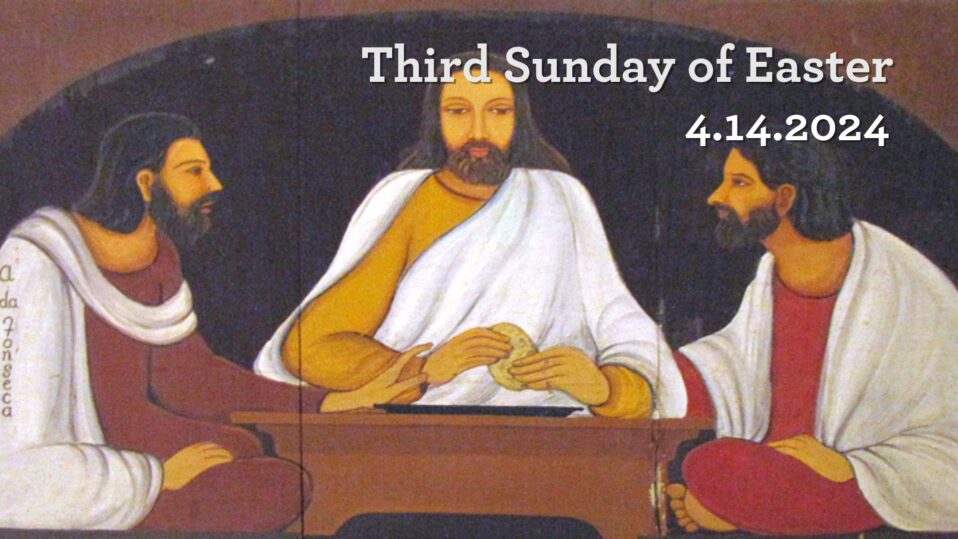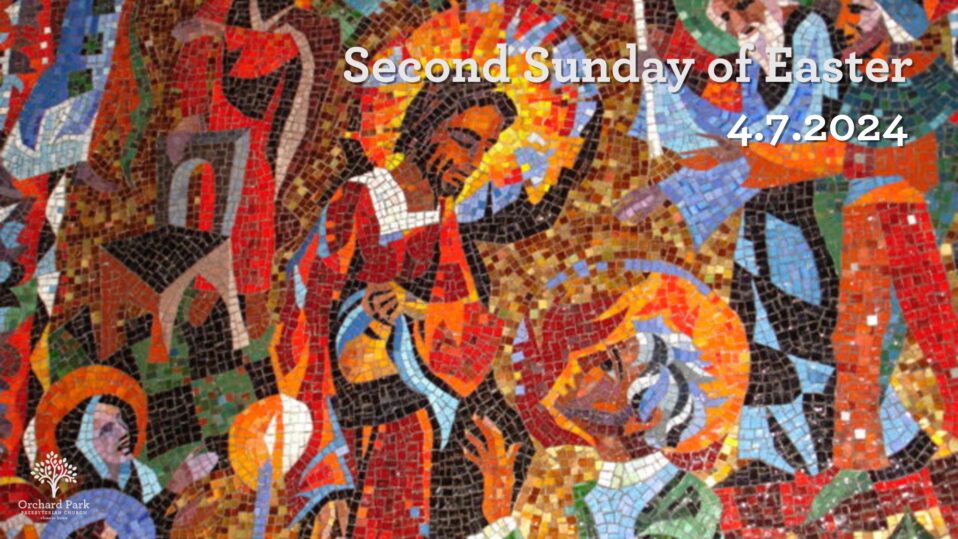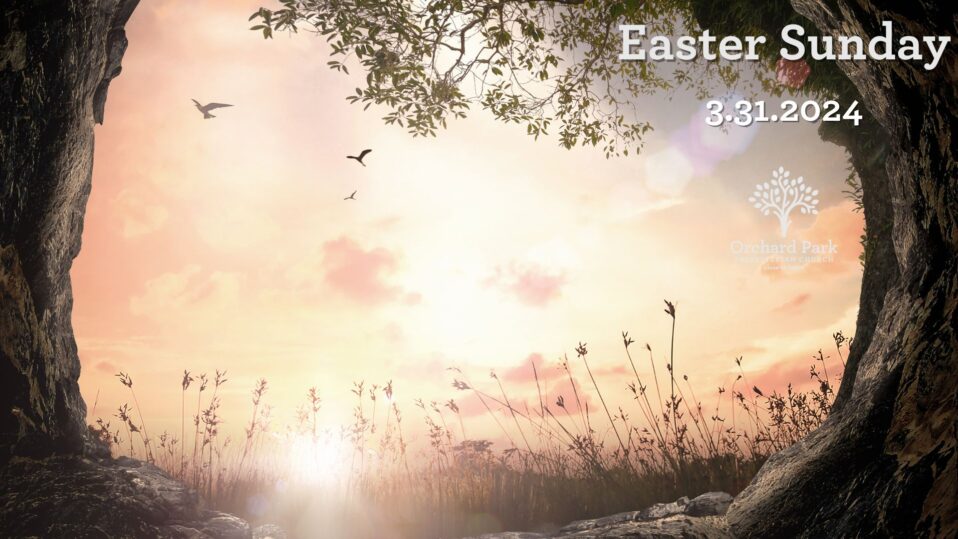I am exceedingly proud to have walked alongside this year’s confirmation class. When I think about how much they have grown in faith and as individuals over the last two years, it really is quite remarkable. You know, a child’s brain develops as much between the ages of birth to three as it does ages 12-15. Those three years of childhood development are crazy and amazing. For the first time kids are able to think about concepts they have never thought of before. They are able to move developmentally from a logical thinking of black and white into a greyer area. They can think critically and independently. It is incredibly fun to see them grow into independent believers.
One of the things we talk about early on in our class is trying to get our heads around. Is what is faith? Faith is an abstract concept. It is something we know we want but not entirely sure what it looks like or how it is lived out. We also want to contain our faith, like sure I want to have faith, but I do not necessarily want to be faithful, or let it get in the way of other priorities. We make it confusing, complicated, and constricted. We put rules around faith. -If you believe this way you are wrong if you believe this way you are right. We evaluate other people’s faith. – That person was a man of great faith – how do we know that? How do we measure a person’s faith? And finally, we talk a lot more about faith than about actually living it out.
So, in order get the confirmands to think personally about their faith stories and to own their personal relationship with God, I ask them to think about their faith like a metaphor or a simile. I give them a bunch of examples and they pick the one that fits them the most and then they explain why. For example, Alec said his faith was like a tree, “my roots are at Orchard Park, and I want to grow.” Evan said his faith was like a river, he wrote, “God is a boat waiting to take me across and the water is problems or difficulties in my life. I may dwell in the river, but God will take me safely across the water to be safe and content.” Krista said, “a long journey that never ends and has very many different paths I could take. I have been on this journey my whole life and when I was little was when I hit a lot of dead ends. When in a dead end I am not as close with God as I wanted to be, when in a long road I am as close as I would like to be.” Katie said her faith was like a –
What about you? What would you say your faith journey was like? I encourage you to share that with your family around the dinner table and think about how that metaphor is being lived out.
Our Gospel reading today is the story entitled the “road to Emmaus.” It is about two disciples that are taking a seven mile walk from Jerusalem to a town that archeologists cannot find on a map. Emmaus is a metaphor for the place we go when we need to figure things out. Walking to Emmaus is something we all do when we go for a walk with someone and ask questions like, “why did that happen? What should I do now? What do you think will happen next?” When we go down roads, we had expected to be on after an event that rocked our world, and our faith has been challenged, we find ourselves on the Road to Emmaus. Any time you find yourself saying, “well I hoped things we have been different” You are one the road to Emmaus.
When you lose hope, you despair and that is where the disciples are.
“We had hoped that he was the one to redeem Israel,” but he died instead. Jesus hears their perspective and sees the lens through which they are seeing the world and he changes the lens. He says, you are missing the point entirely. You were hoping for the wrong thing. This is not about Jesus of Nazareth, this is about the Messiah, the son of God, who had to die for the cosmic arc of redemption, hope, and divine love that spans centuries. Jesus says that story, and the hearts of the listeners burn.
That is what happens when we recognize that Jesus is our walking partner in life. We talk and talk and try to understand why things are not working out and Jesus listens and eventually if we give space to listen, Jesus changes our perspective. That brings me to the second spiritual exercise I gave the confirmands, and I will share with you – particularly inviting on these spring days. Go out for a walk and commit to at least five minutes of just listening. Try to expand to 10 and the 15, do not let thoughts enter in, but rather put all of your attention on listening. It is so simple, it is difficult. Through this spiritual discipline, you will discover that you are not walking alone, and you will gain new perspective.
The thing we often forget about our faith journeys is that it is not our faith journeys – we don’t own them. Our faith is a gift from God, it is God who is faithful, so that we are faithful in return. The faithfulness of God comes first. We are such control freaks we think we can control God’s faithfulness. That is absurd. Or as Jesus says, “How foolish you are, how slow you are to believing everything the prophets said.” The hymn does not go, Great is my faithfulness, oh God my father. No, it goes great is thy faithfulness. Great is thy faithfulness. Now faith is confidence in what we hope for and assurance about what we do not see.
This leads me to the third thing I hope the confirmands remember this day and that is when the chips are down, and life has moved on from 8th grade and this day, and they find themselves needing to remember something they have forgotten, but themselves and God and their place in the world, I instructed them to at least remember Psalm 139. If they cannot remember anything else, go find Psalm 139:
God will not let your foot slip—
he who watches over you will not slumber;
4 indeed, he who watches over Israel
will neither slumber nor sleep.
5 The Lord watches over you—
the Lord is your shade at your right hand;
6 the sun will not harm you by day,
nor the moon by night.
7 The Lord will keep you from all harm—
he will watch over your life;
8 the Lord will watch over your coming and going
both now and forevermore.
God is faithful.
The final scene of the story ends with the disciples inviting the stranger to stay with them and share in a meal. It is when the are sitting down at the table together that Jesus breaks bread, and suddenly their eyes are open and they recognize him, and then he vanishes. It was through the ritual of breaking bread that Jesus made himself known. That is where the church comes in, yes go for walks, and pray and listen, yes read the Bible for the assurance of God’s presence, but it is in worship, with ritual in community that Jesus makes himself known. The church is the place where Jesus makes himself known to us. The Church is the bread.
I had a dream a few months ago, that has stayed with me. In the dream someone tells me the Holy Spirit has left the church and so he is leaving too. I argued with him and said, “No! You are wrong! The Holy Spirit is still here.”
The dream switched over to someone else, he served me breakfast, which was a beautiful, large croissant. He looked at the croissant and said, “This is too big for you to eat on your own. Let me cut it in two and I will share it with you.”
I wish I could tell you that everything will be all right, that life will not be difficult, or unfair, or that life will not always turn out as you expect.
What I can tell you is that Jesus is faithful
What I can tell you is that the church, (which is the bread), is too big for one person to digest on its own. The church is a beautiful, warm, shareable, soft, croissant, meant to be savored and enjoyed. Those who come will share in the feast, which He has prepared.
The gifts of God for the people of God- Come now, for all is ready.
Amen.
Rev. Dr. Shelly Wood



